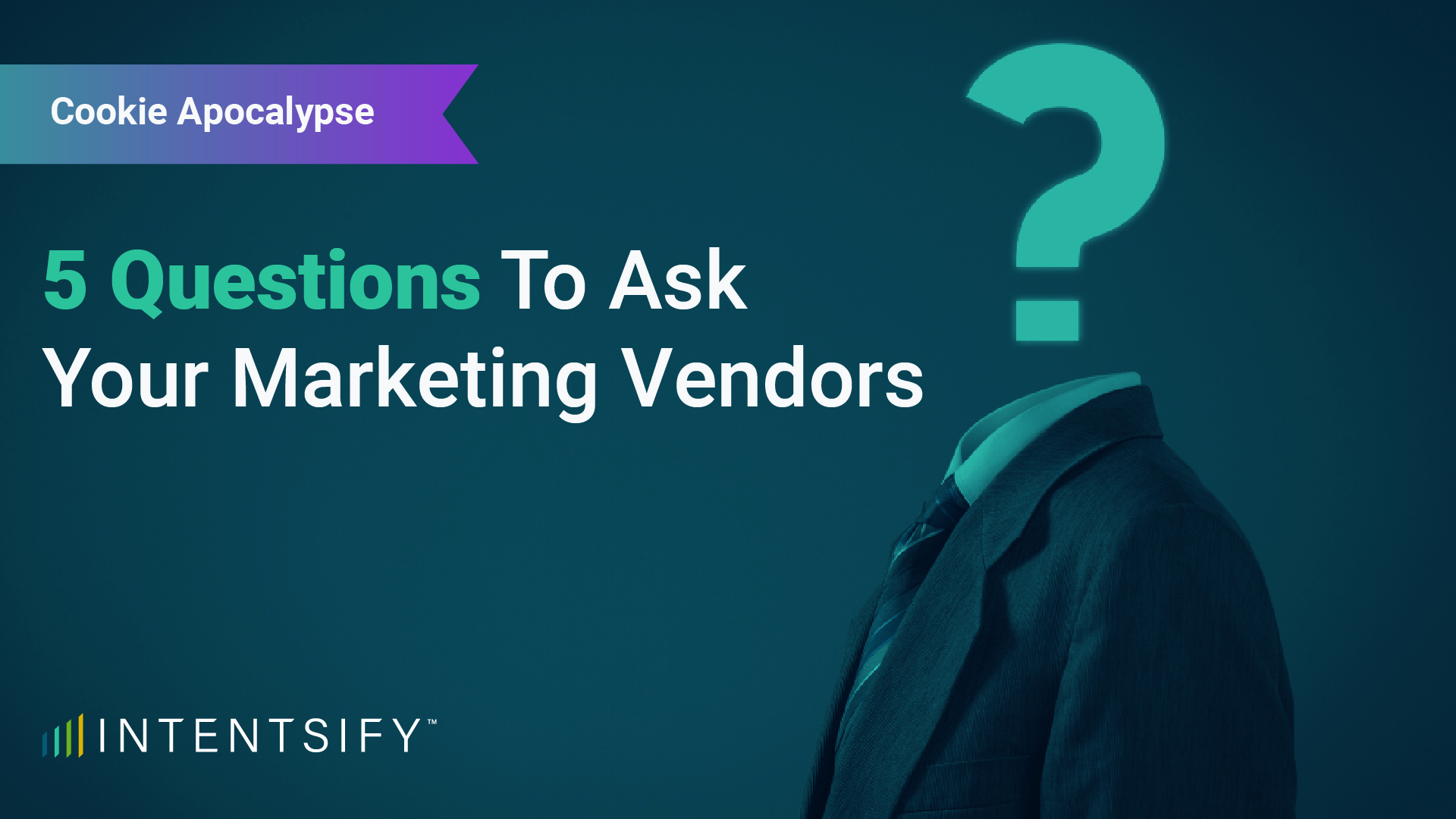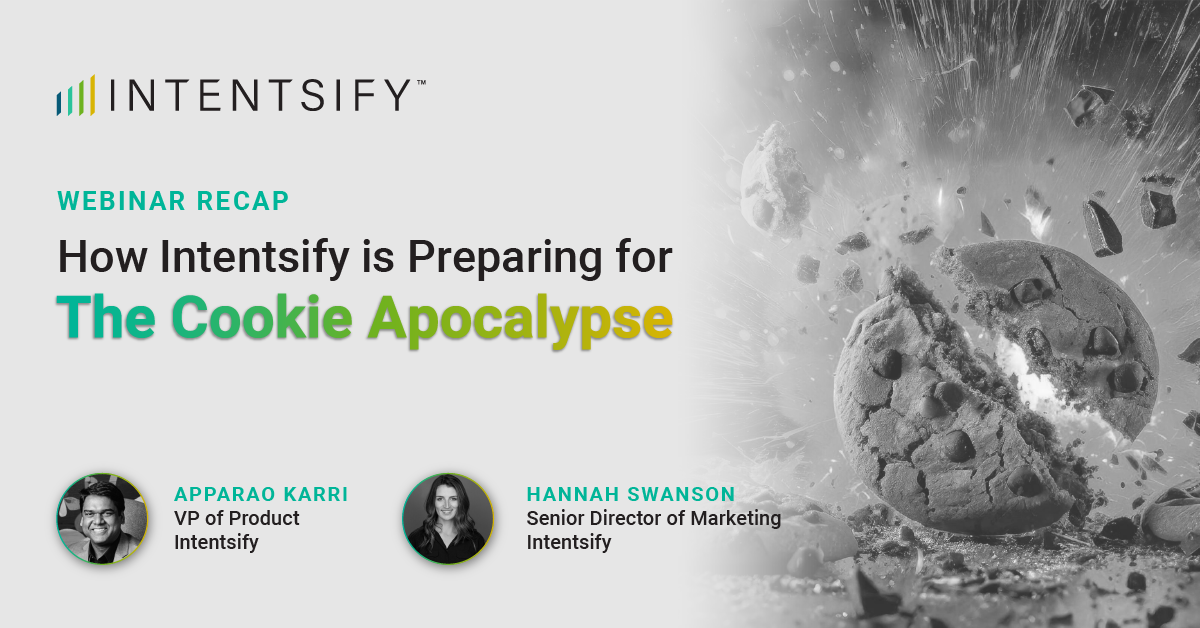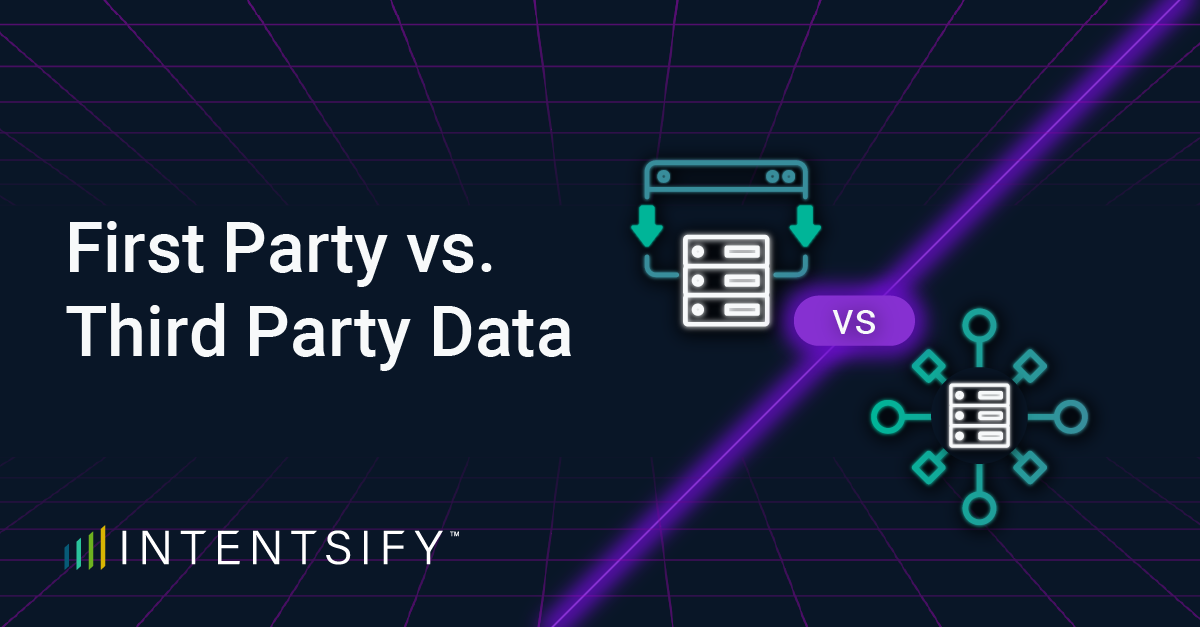The digital advertising landscape is undergoing a significant shift with the deprecation of third-party cookies. These cookies, which have long been used to track user behavior across the web, are being phased out by major browsers like Chrome, Safari, and Firefox due to privacy concerns.
This change is having a major impact on how businesses monitor and engage their target audiences, and it’s particularly important for businesses relying on intent data and account-based marketing (ABM) strategies.
The deprecation of third-party cookies is a challenge for both intent data vendors and ABM platforms. In the past, these vendors have relied on third-party cookies to track user behavior and collect data. However, with third-party cookies going away, they need to find new ways to collect and use data.
Here are some of the key questions you should ask your intent data and ABM platform vendors to understand how they are preparing for the deprecation of third-party cookies:
1. How are you collecting data without third-party cookies?
This is the most important question to ask. Your intent data vendor and ABM platform should have a clear strategy for collecting data without third-party cookies. Some of the methods they may be using include:
- First-party data: This is data that is collected directly from your website or app, such as contact information, purchase history, and website activity.
- Permission-based (also known as “zero-party”) data: This is data that users explicitly provide to you, such as through form fills, surveys, or polls.
2. What alternative identifiers are you using?
In the absence of third-party cookies, some intent data vendors (including Intentsify) and ABM platforms are using alternative identifiers to monitor target-buyer research activities and buying behaviors. These identifiers may include hashed emails, IP addresses, and/or device IDs, which are then cross-referenced to create an audience ID graph.
3. How are you ensuring data privacy compliance?
With the increasing focus on data privacy, it’s important to make sure that your intent data vendors and/or ABM platform are compliant with all applicable data privacy regulations, such as the General Data Protection Regulation (GDPR) and the California Consumer Privacy Act (CCPA). You should ask them about their data privacy practices and how they’re ensuring that user data is collected, used, and stored in a compliant manner.
4. How are you measuring the effectiveness of your campaigns without third-party cookies?
Measuring the effectiveness of marketing campaigns is always a challenge, and it will become even more challenging with the deprecation of third-party cookies. You should ask your intent data and ABM platform vendors how they’re planning to measure the effectiveness of your campaigns without using third-party cookies.
5. What are you doing to future-proof your business?
The deprecation of third-party cookies is a significant change, but it’s also an opportunity for businesses to innovate and find new ways to reach their target audiences. You should ask your vendors what they’re doing to future-proof their business and stay ahead of the curve.
By asking these questions, you can gain a better understanding of how your intent and ABM vendors are preparing for the deprecation of third-party cookies. You’ll likely find that some—if not most of your vendors—are ill-prepared. In fact, it’s quickly becoming a critical time for many B2B organizations to rethink their marketing-technology and vendor ecosystem.
As data-privacy concerns and regulations continue to proliferate globally (often with heavy consequences for those organizations that ignore them), it’s increasingly important for B2B sales and marketing teams to create a strategy for this new market reality. Your approach to third-party cookies should be a key element. And you must ensure that you’re using the right tools that can fuel your go-to-market (GTM) strategies—regarding both buyer intelligence and engagement—to achieve your growth goals in the new era of privacy-first marketing.






